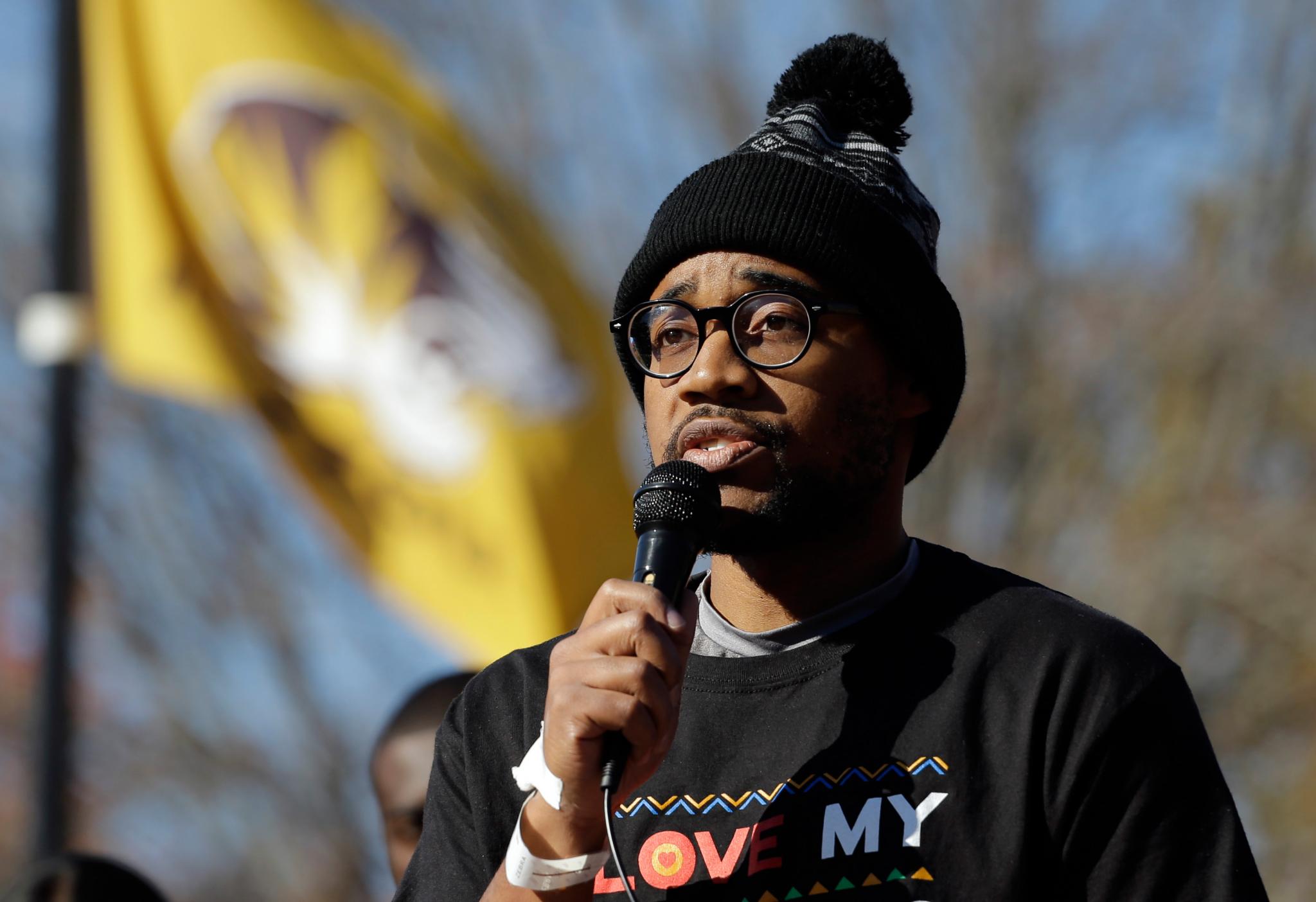
Meet Jonathan Butler.
Originally from Omaha, Jonathan made the 300-mile trek to the University of Missouri in 2008 to pursue a bachelor’s degree in business administration. According to NBC News, post-graduation, he opted to stay at Mizzou and work toward his Master’s in education.
After last year’s shooting of Michael Brown, Jonathan traveled the three hours from Columbia to Ferguson to march alongside the city’s protestors. Earlier this year, Jonathan become increasingly involved in campus activism and joined students demanding change following a string of racist incidents. On Monday, Nov. 2, he began a one-man hunger strike. His mission? To get MU President Tim Wolfe to resign.
As Jonathan’s health began rapidly deteriorating, the faculty took minimal steps to address the issue at hand. It wasn’t until last weekend when the university’s football team banded behind Jonathan, refusing to play until Jonathan ate (which wouldn’t happen until the president resigned), that university officials took the students’ and faculty’s concerns seriously.
African-American students everywhere cheered following Wolfe’s resignation yesterday and the university’s implementation of new diversity procedures, but as a graduate of University of Kansas, a sports-centric public university (and MU’s rival, might I add), it made me wonder whether it should have taken student athletes—and the threat of the school losing $1 million per forfeited game—to ignite the much-needed change.
I grew up outside of Kansas City, Mo., which means that many of my high school peers attended the University of Missouri. However, my uncle warned me as I was applying to colleges that the city of Columbia, Mo., has a long history of racism—the KU-MU rivalry dates back to Civil War days when Kansas was a free state and Missouri was a slave state. Pair that knowledge with my family’s lineage of Jayhawks, and I decided to attend MU’s rival, the University of Kansas.
Like most everyone on campus, I lived and breathed the campus’ basketball culture. I was at every game, and I still boast an impressive collection of KU basketball T-shirts. However, I very quickly saw the pedestal that the basketball players were placed upon.
Students and administrators alike bowed down to the players. The athletes oftentimes were absent from class—note that they were among the first to register for classes—yet professors still praised them. And no one cared.
University of Missouri Announces Diversity Initiatives After President, Chancellor Resign
This culture isn’t exclusive to KU or MU, or any college, for that matter. But it does pose the question of why campus administrators are quick to respond when a school’s prize athletes are at stake.
Universities and colleges everywhere have a responsibility to cater to all students, regardless of race, religion, sexual orientation… or student athlete-status. Jonathan Butler literally put his life on the line—he told the Washington Post that his body felt like it was “on fire” two days before the football team joined his cause—but his pleas were swept under the table by the administration.
Make no mistakes—I completely support Mizzou’s football team and the commendable stance that they took. For better or for worse, it demonstrates the enormous clout that our country’s athletes carry and show what can come when they use their soapbox for change.
However, Jonathan Butler’s demonstration simply highlights a larger problem that is rampant in our society. When it comes to injustices, why is it that the people in power largely ignore the masses and listen only when, say, their moneymaking voices are added to the conversation? Why should certain voices come across louder than others?





